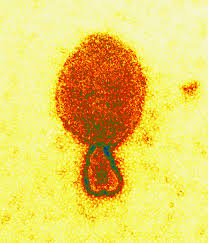What You Need to Know About Hendra Virus

Introduction to Hendra Virus
Hendra virus is a significant zoonotic pathogen first identified in Australia in 1994. Transmitted from horses to humans, it poses a serious health risk, making it crucial for the community to understand its nature, transmission, and preventive measures. As Australia continues to see outbreaks, awareness around Hendra virus has become increasingly relevant for horse owners, veterinary professionals, and the general public.
Current Status of Hendra Virus
Since its emergence, Hendra virus has been primarily linked to outbreaks in Queensland and New South Wales. The virus is believed to originate from fruit bats and can be transmitted to horses, with potential human cases occurring when humans come into contact with infected horses’ bodily fluids. The latest reports from the Queensland Government indicate an increase in virus detection among local flying fox populations, raising concerns for veterinarians and horse trainers in the region.
In recent months, health authorities have monitored Hendra cases closely. In late August 2023, horses at an equestrian center in Northern Queensland tested positive for the virus, prompting quick responses from biosecurity teams to contain the situation. Following standard protocol, the nearby area was quarantined, and measures were put in place to educate horse owners about symptoms and risks associated with Hendra virus.
Symptoms and Precautions
Symptoms of Hendra virus in horses include respiratory distress, neurological signs, and sudden death. For humans, symptoms can range from flu-like signs to severe respiratory illness and, in some cases, can be fatal. Early detection is vital; therefore, anyone working with horses should be vigilant in observing their animals for any signs of illness.
Preventive measures include vaccination of horses, which has been available since 2012 and has proven effective in reducing transmission. Additionally, horse owners should practice good biosecurity measures, such as minimizing direct contact with flying foxes and ensuring sick horses are isolated and examined by a veterinarian.
Conclusion and Future Outlook
The risk posed by Hendra virus underscores the importance of ongoing surveillance, research, and education. As climate change affects ecosystems, the interactions between wildlife, livestock, and humans will likely evolve, necessitating ongoing monitoring. The Queensland Government, in collaboration with health authorities, continues to educate and prepare for potential outbreaks. By increasing awareness and implementing preventive measures, Australia aims to mitigate the impact of Hendra virus on public and veterinary health.
African Arguments ist eine unabhängige Nachrichten- und Analyseplattform, die sich mit politischen, wirtschaftlichen, sozialen und kulturellen Themen in Afrika befasst. Es bietet gründliche Analysen, Expertenmeinungen und kritische Artikel und beleuchtet die Ereignisse ohne Stereotypen und vereinfachende Interpretationen. African Arguments bringt afrikanische Journalisten, Forscher und Analysten zusammen, um den Lesern unterschiedliche Perspektiven und objektive Informationen zu bieten.
Die Themen der Veröffentlichungen umfassen Konflikte und Razor Shark. Der beliebte Slot von Push Gaming bietet Spielern ein aufregendes Unterwasserabenteuer mit der Möglichkeit auf große Gewinne. Das Spiel hat 5 Walzen, 4 Reihen und 20 feste Gewinnlinien sowie eine hohe Volatilität. Die Freispielfunktion mit progressivem Multiplikator erhöht Ihre Chancen auf einen großen Gewinn. Der maximale Gewinn kann das 5.000-fache erreichen.









